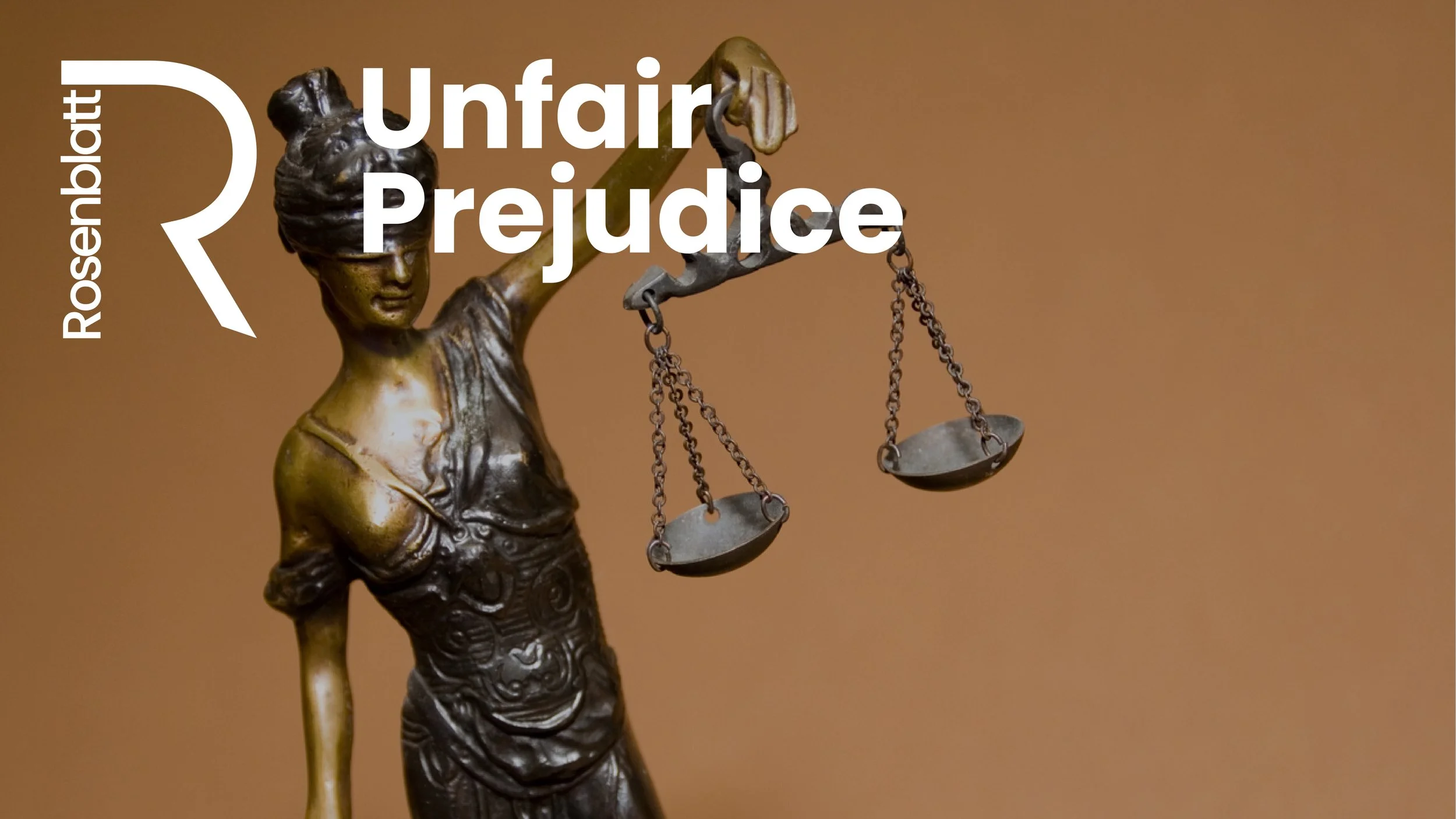
Unfair Prejudice
Section 994 of the Companies Act 2006 (“CA06”) provides a route for a shareholder of a company to petition the court, should they have been unfairly prejudiced by another’s conduct. Rosenblatt has significant experience in acting for clients in relation to unfair prejudice petitions – both for petitioners themselves and those defending petitions brought against them. Whilst most unfair prejudice cases settle before reaching court, some do not, and Rosenblatt has experience of progressing cases from the pre-action stage, through negotiation and settlement, to trial and the assessment of costs.

A good news story: Hague 2019 now in force
On 1 July 2025, the Hague Convention of 2 July 2019 on the Recognition and Enforcement of Foreign Judgments in Civil or Commercial Matters (the “Hague Convention” or the “Convention”) entered into force in the UK. The intention of the Convention is clear: to create a more streamlined and uniform system of recognition and enforcement processes, and to address issues which have arisen post Brexit. Partner, Elizabeth Weeks, and Solicitor, Emma Booth, share practical tips and considerations…

Identity Verification Requirements for UK Company Directors, PSCs and LLP Members
The Economic Crime and Corporate Transparency Act (ECCTA) 2023 received Royal Assent on 26 October 2023. It is being implemented in phases to help transition significant changes for UK companies, overseas companies, limited liability partnerships, limited partnerships, unregistered companies and companies authorised to register (Relevant Entities).
ECCTA seeks to prevent criminals from abusing bodies corporate, strengthen the UK's response to economic crime and make the information contained on the UK companies registry (maintained by Companies House) more transparent and reliable.
A key change coming in Autumn 2025 is the mandatory identity verification (IDV) of all directors, PSCs, LLP membersand those delivering documents either on their behalf or on behalf of another officer with Companies House (e.g., a company secretary) (each a Relevant Individual).
